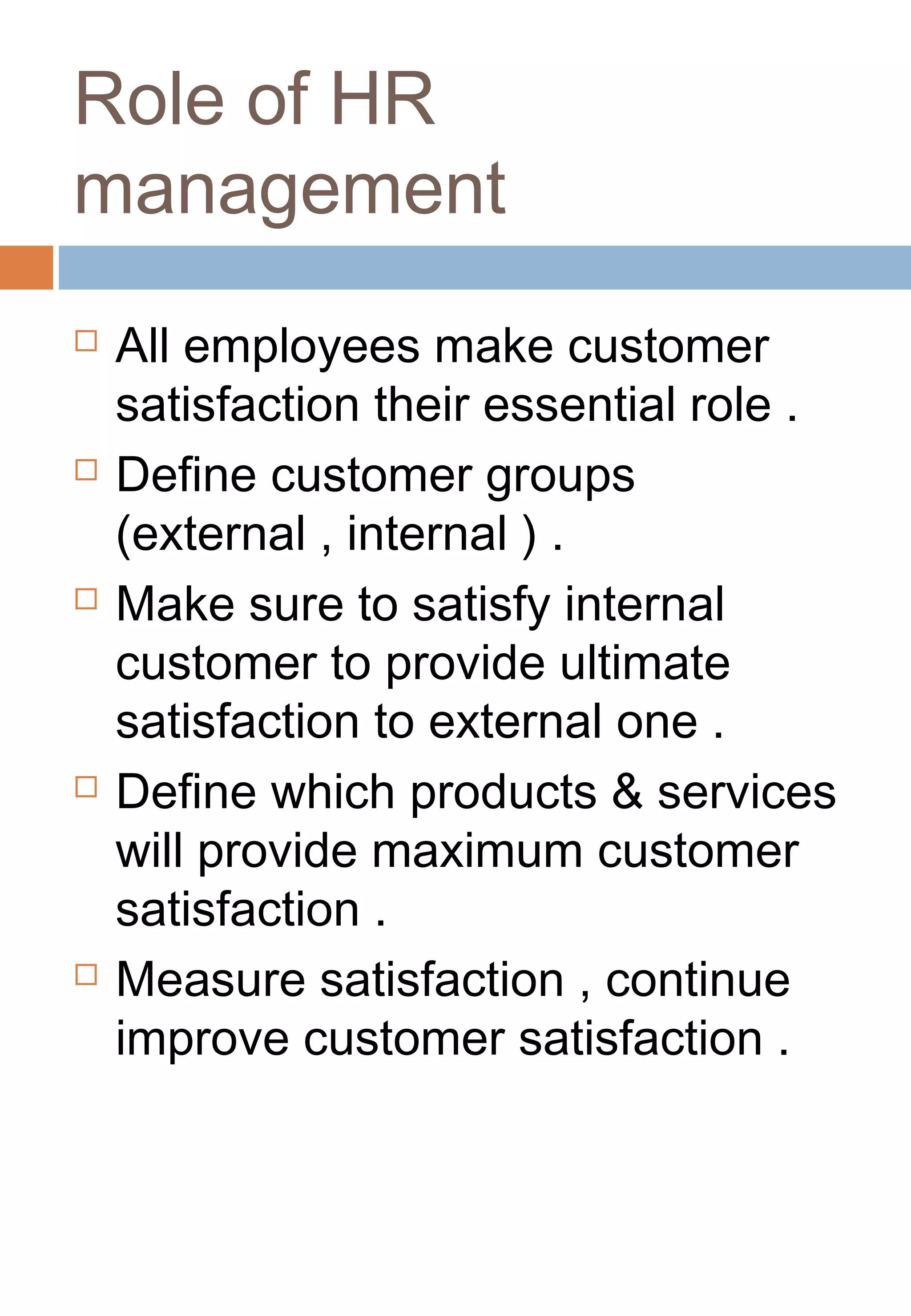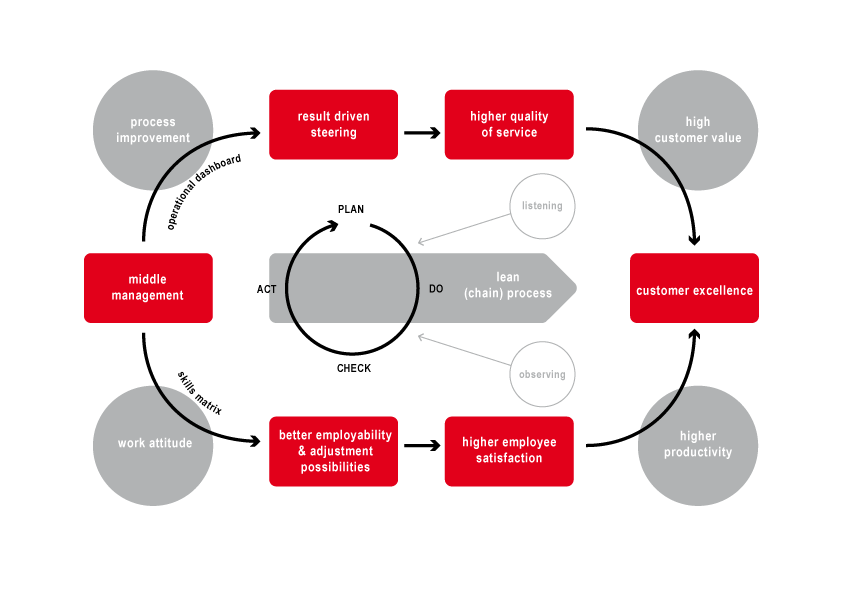Understanding The Crucial Role Of Middle Management In Organizations

Table of Contents
The Bridge Between Upper Management and Frontline Employees
Middle managers serve as the critical link between high-level strategic planning and the day-to-day operations of frontline employees. They translate complex, overarching strategies into actionable plans, setting clear goals and expectations for their teams. This requires seamless and consistent communication flowing in both directions. Information flows upwards, providing upper management with progress reports, highlighting challenges, and offering valuable feedback from the field. Simultaneously, clear and concise directives flow downwards, ensuring everyone understands their roles and responsibilities.
- Effective communication techniques used by successful middle managers include regular team meetings, open-door policies, and the utilization of various communication channels (email, instant messaging, project management software) to suit the needs of the team.
- Challenges in communication often include information silos, where information isn't shared effectively across departments; conflicting priorities, where teams are pulled in multiple directions; and a lack of feedback mechanisms, preventing identification of issues and necessary adjustments. Overcoming these hurdles involves establishing clear communication protocols, promoting transparency, and actively soliciting feedback from team members.
- Feedback mechanisms are essential. Regular check-ins, performance reviews, and 360-degree feedback processes ensure that communication remains open and that issues are addressed promptly.
Driving Employee Engagement and Motivation
Middle managers are instrumental in fostering a positive and productive work environment. Their ability to motivate and engage their teams directly impacts employee satisfaction, retention, and overall productivity. This involves more than just task assignment; it's about mentoring, coaching, and providing opportunities for professional development. Effective middle managers empower their teams, fostering a sense of ownership and accountability.
- Strategies for motivating and recognizing employee contributions include offering praise and recognition, providing opportunities for advancement, celebrating successes, and offering rewards and incentives.
- Creating a supportive and inclusive team culture is vital for employee engagement. This involves fostering open communication, promoting collaboration, respecting diverse perspectives, and addressing any instances of discrimination or harassment promptly and decisively.
- Addressing employee concerns and resolving conflicts effectively is a hallmark of strong middle management. This requires active listening, empathy, and the ability to mediate disputes fairly and efficiently.
Strategic Implementation and Operational Efficiency
Middle managers are responsible for overseeing daily operations, ensuring efficiency and achieving the strategic objectives set by upper management. They play a critical role in performance management, monitoring key performance indicators (KPIs), and identifying areas for improvement. Effective problem-solving skills are essential for navigating operational bottlenecks and optimizing processes.
- Effective performance management strategies include setting clear goals, providing regular feedback, offering constructive criticism, and conducting performance reviews. Utilizing performance management software can streamline this process and provide valuable data-driven insights.
- Using data and KPIs to track progress and make improvements allows middle managers to identify trends, pinpoint areas needing attention, and make data-driven decisions to enhance operational efficiency. Regular reporting on KPIs to upper management keeps everyone informed and aligned.
- Problem-solving skills are paramount for optimizing operational efficiency. This involves identifying bottlenecks, analyzing root causes, and implementing solutions to address challenges.
The Impact of Effective Middle Management on Organizational Success
Strong middle management significantly impacts various aspects of organizational success. Studies have shown a direct correlation between effective middle management and increased productivity, reduced employee turnover, and improved profitability. A well-managed team is a more productive team, leading to higher output and increased revenue. Lower employee turnover translates to reduced recruitment and training costs, saving the organization significant resources. Ultimately, this translates to a greater return on investment (ROI).
The Indispensable Role of Middle Management
In conclusion, effective middle management is not merely a component of a successful organization; it's the cornerstone. They bridge the gap between strategic planning and operational execution, fostering employee engagement, driving operational efficiency, and ultimately contributing significantly to the organization's bottom line. Organizations must invest in developing and supporting their middle management teams through targeted training programs and leadership development initiatives. By nurturing the skills and abilities of their middle managers, organizations can unlock the full potential of their workforce and achieve sustainable, long-term success. Investing in effective middle management is investing in the future of your organization. Start improving your middle management practices today, and see the positive impact on your entire organization.

Featured Posts
-
 Guilty Plea Lab Owner Falsified Covid 19 Test Results
Apr 22, 2025
Guilty Plea Lab Owner Falsified Covid 19 Test Results
Apr 22, 2025 -
 How Middle Management Drives Company Performance And Employee Satisfaction
Apr 22, 2025
How Middle Management Drives Company Performance And Employee Satisfaction
Apr 22, 2025 -
 Ryujinx Emulator Shuts Down Following Nintendo Contact
Apr 22, 2025
Ryujinx Emulator Shuts Down Following Nintendo Contact
Apr 22, 2025 -
 Canadian Bread Price Fixing Case 500 Million Settlement Hearing Approaching
Apr 22, 2025
Canadian Bread Price Fixing Case 500 Million Settlement Hearing Approaching
Apr 22, 2025 -
 The Selection Of A New Pope A Deep Dive Into Papal Conclaves And Their Procedures
Apr 22, 2025
The Selection Of A New Pope A Deep Dive Into Papal Conclaves And Their Procedures
Apr 22, 2025
